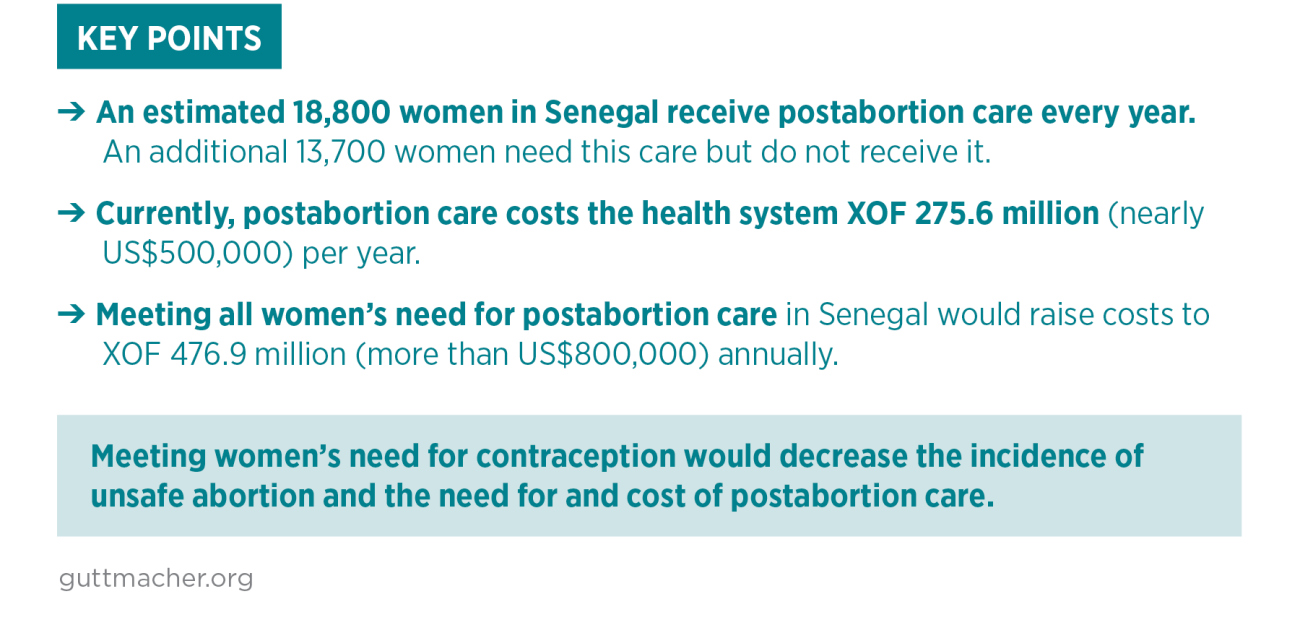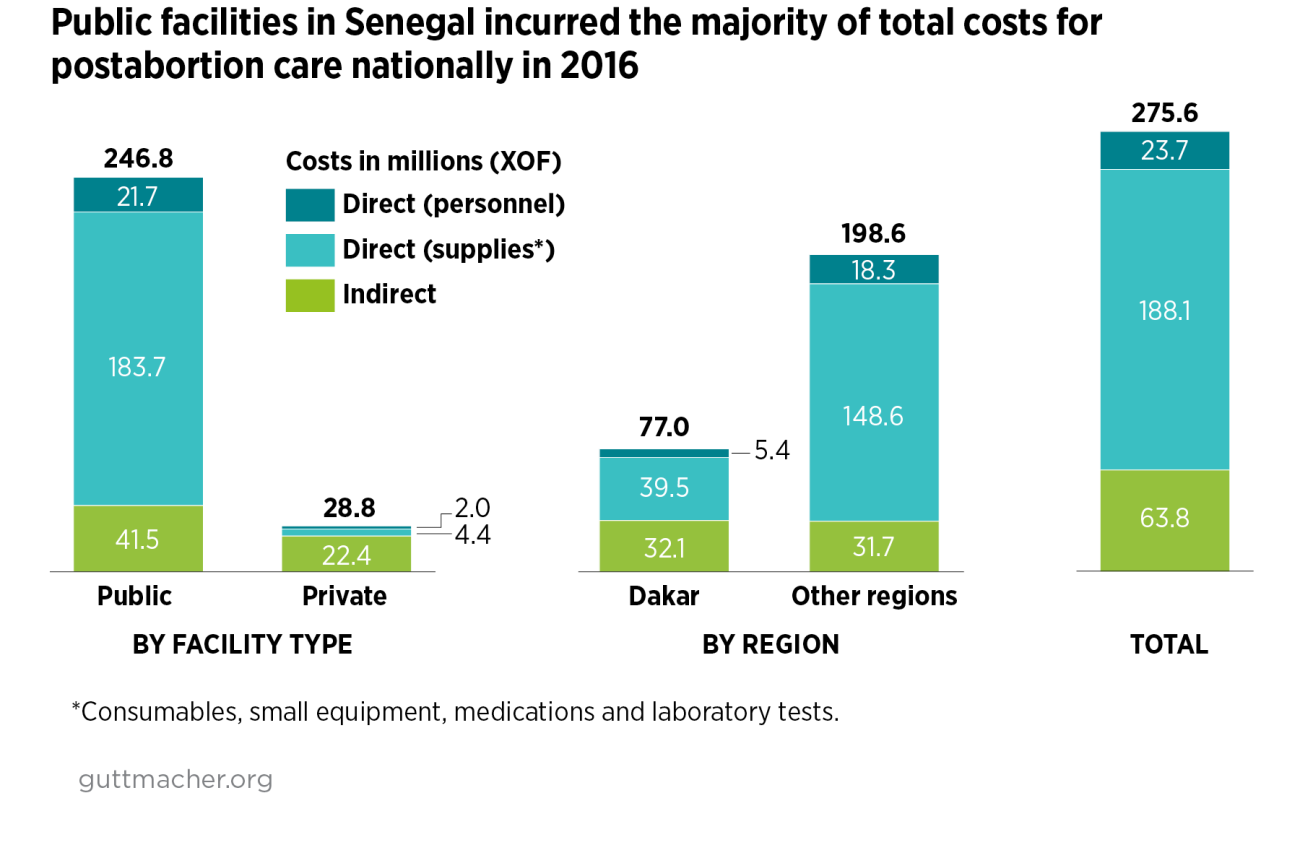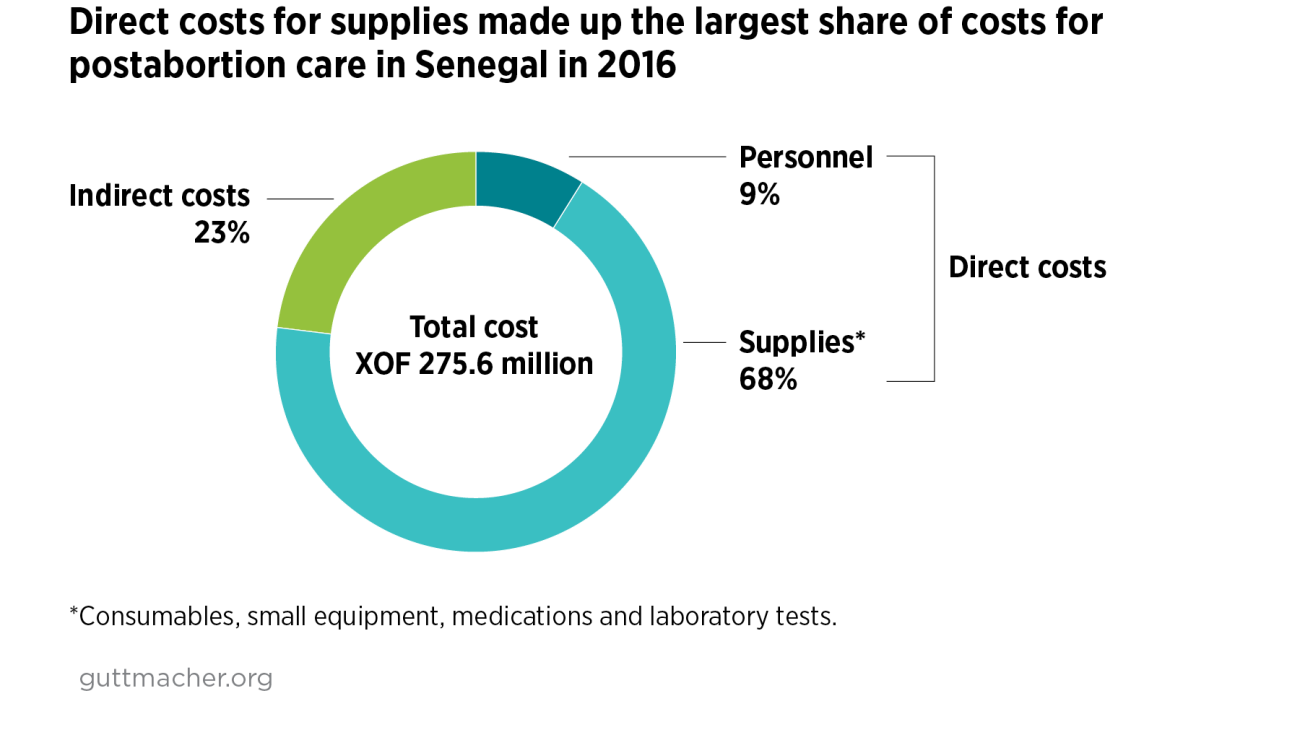Abortion is legally prohibited by the penal code in Senegal. Yet abortions still occur, often under unsafe conditions. Postabortion care—which is critical for reducing deaths from unsafe abortion—is legally permitted, and there have been efforts to expand these services across the country. This fact sheet presents findings from a study estimating the costs to the health system in Senegal of providing care for abortion complications.

Need for and cost of postabortion care
- In 2016, an estimated 18,800 women received postabortion care nationally. Public facilities provided nearly all services.
- The average cost per patient was 15,814 West African CFA francs (XOF), equivalent to about $27 in 2016 U.S. currency.
- The total national cost associated with postabortion care was an estimated XOF 275.6 million (about US$465,000), and 90% of this cost was borne by public facilities.
- On a regional level, total direct costs were lower in Dakar than in other areas of the country.
- Direct costs, which included personnel and supply costs, represented the largest share of costs for postabortion care. Supply costs accounted for 68% of the total 2016 cost.
- According to facility reports, patients were charged fees equivalent to an estimated 20% of the total health system costs for postabortion care. Such out-of-pocket costs may pose a barrier for individuals to obtain care.


Reducing costs and improving health outcomes
- The current health system costs of providing postabortion care in Senegal are substantial. Yet, Senegal is not currently meeting the full need for postabortion care. If the government of Senegal were to meet all needs for this essential service, the estimated total cost would increase by nearly 75% to XOF 476.9 million (about US$805,000) annually.
- In 2016, Senegal spent 5.5% of its national gross domestic product (roughly $1.04 billion) on health care. Spending on postabortion care accounted for 0.04% of those costs. Although this proportion may appear small, these funds could make a difference elsewhere in Senegal’s health system if the need for postabortion care were reduced.
- Increasing national investment in contraceptive services would help to reduce the need for and cost of postabortion care by averting unintended pregnancies and unsafe abortions. Research in other settings has highlighted the financial and health benefits of offering a broad range of services that address women’s right to access sexual and reproductive health services, including those that prevent unsafe abortion.
- As the national government works toward universal health coverage, policymakers in Senegal will need to carefully evaluate their options for achieving health-related goals with limited resources. Any efforts to expand access must consider who pays and how, so costs borne by patients are not a barrier to obtaining needed services.
Source
The information in this fact sheet can be found in Lince-Deroche N et al., The health system costs of postabortion care in Senegal, International Perspectives on Sexual and Reproductive Health, 2020, 46:99–112, https://www.guttmacher.org/journals/ipsrh/2020/06/health-system-costs-p….
Acknowledgments
The study on which this fact sheet is based was made possible by grants to the Guttmacher Institute from the William and Flora Hewlett Foundation and the Dutch Ministry of Foreign Affairs. The views expressed are those of the authors and do not necessarily reflect the positions and policies of the donors.
Reproductive rights are under attack. Will you help us fight back with facts?
Read More
The Health System Costs of Postabortion Care in Senegal
International Perspectives on Sexual and Reproductive Health
